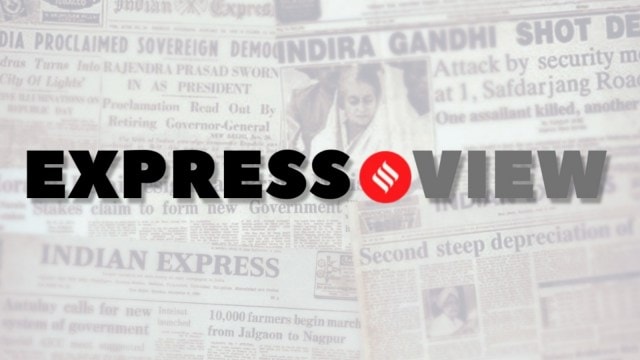
The 2003 visit to Delhi by the then-president Syed Mohammad Khatami was hailed as a landmark moment for India-Iran ties. The centrepiece of the slew of agreements was cooperation on the development of Chabahar Port, which could open up access to the Persian Gulf, Afghanistan, Central Asia and Europe. In the 21 years since, as animosity deepened between Washington and Tehran, and Delhi grew closer to the former, the development of the port slowed down. Since 2015 — to the credit of the current government — there has been consistent forward movement. While the coordination between Iran, India and Afghanistan may have been dampened by the Taliban’s return in Kabul, the strategic importance of Chabahar is intact. In this context, the announcement of a 10-year contract between the government’s India Ports Global LTD (IPGL) and the Ports and Maritime Organisation of Iran for the operation of a terminal at Chabahar is significant and welcome.
IPGL will directly invest about $120 million while India has offered credit in rupees equivalent to $250 million. There is concern over US sanctions on Iran affecting India’s strategic bet with Chabahar, but these may be exaggerated. It was, after all, under Donald Trump’s tenure in 2017 — the former US president took a hawkish stance on Iran — that Delhi was able to get a waiver from sanctions on the Chabahar project, citing access to Afghanistan. On the commercial front, however, things are more complicated. Which products can be traded with and through Iran, and at what volume, may become a bone of contention for some of India’s friends in the West. Then there’s the fact that China is deeply entrenched in Central Asia and its markets, including through its Belt and Road Initiative.
The Chabahar project is a potential component of the International North-South Transport Corridor, envisioned by Russia, Iran and India to link South Asia with Central Asia and Europe. Tensions within Europe, as well as between Iran and the West, make this important project a challenging one. The India-Middle East-Europe Economic Corridor, announced at the G20 summit in Delhi last year, has great potential as well. Formulated as a counter to BRI, it seeks to build road, rail and shipping networks through India’s near-West to Western Europe. Unfortunately, the Israel-Hamas conflict has paused the gains of the Abraham Accords and slowed down the project. What these diverse partnerships illustrate is that Delhi is pursuing many routes as it looks to its near West, and that it is willing to negotiate a complex global strategic environment to do so.

